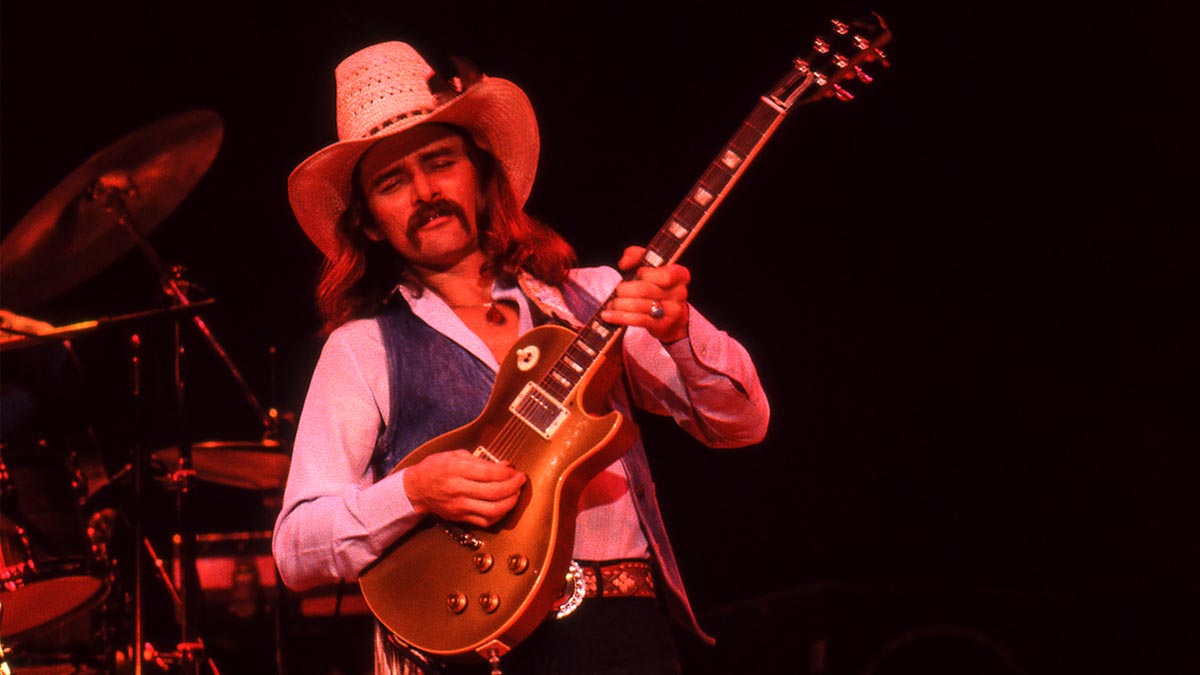“Dickey was larger than life, and his loss will be felt world-wide”: Allman Brothers Band co-founder and legend of southern rock guitar Dickey Betts has died, aged 80
Betts wrote some of the Allman Brothers' biggest hits, including Ramblin’ Man, influencing a generation of players with a sound that threw all kinds of styles into the pot and made it work

Dickey Betts, the legendary guitarist/vocalist and co-founder of the Allman Brothers Band and figurehead of southern rock guitar has died today, 18 April, aged 80.
In a statement, his family said Betts died peacefully at home in Osprey, Florida, describing him as a “larger than life” character whose passing would be felt worldwide.
They are not wrong. Betts will unquestionably go down as one of the most influential guitarists and songwriters of his generation. Born Forrest Richard Betts in West Palm Beach, Florida, raised across state in Bradenton, it was no surprise to learn that he started out young, working his way through the stringed instruments as a child, from ukulele to banjo then guitar, and fixing to get a gig as soon as he could as a teenager.
By the late ‘60s he was a serious player, and serious players are birds of a feather. Talent attracts talent. In ’69 he joined up with Gregg and Duane Allman in the Allman Brothers Band, as lead guitarist, vocalist and songwriter, and excelled in all three roles, forming a formidable partnership with Duane.
I think the single greatest guitar solo I have ever witnessed was Dickey playing Blue Sky
Derek Trucks
As a songwriter, he wrote the band’s biggest hit, Ramblin’ Man – later admitting he had wanted to send it to Johnny Cash – and he give instrumental rock a freewheeling jazz sensibility with tracks such as Jessica, which was inspired by Django Reinhardt and named after Betts’ daughter.
Blue Sky, from 1972’s Eat A Peach, was another stone-cold Allman Brothers classic that came from Betts, and was testimony to the understanding he and Duane had developed on guitar. Tragically, it would be one of their last together, with Allman dying in a motorcycle crash on 29 October 1971. He was 24.
Following the commercial success of the Allman Brothers Band’s 1973 album, Brothers And Sisters, Betts made his solo debut with Highway Call in 1974.
Want all the hottest music and gear news, reviews, deals, features and more, direct to your inbox? Sign up here.
As more projects came together, more ‘70s solo albums with his backing band, Great Southern, and with the Dickey Betts Band in the ‘80s, the through line became ever more clear. Betts made all styles his own.
His compositional sensibility was the great emulsifier, bringing together bluegrass, country, folk, rock, blues, jazz, symptomatic of his broad musical vocabulary, and his greatness as a songwriter, as an improvisor, was the ease with with he used it.
A post shared by Dickey Betts (@dickeybettsofficial)
A photo posted by on
But in truth it wasn’t easy. Those who witnessed Betts’ genius at first hand knew that. Like Derek Trucks, who, speaking to MusicRadar in 2019, said playing alongside Betts in a reunited incarnation of the band was a steep learning curve. Betts, who helped usher in the era of the jam band, was not afraid to take risks live, in front of an audience, with his peers.
“I played in a band with him for a while and there would be some nights where he just didn’t have it,” said Trucks. “And then the next night he would play the most beautiful s**t I have ever heard in my life.”
Trucks said that when Betts was on, he was on. No one could touch him. Betts’ solo on Blue Sky is worthy of our attention.
“I think the single greatest guitar solo I have ever witnessed was Dickey playing Blue Sky,” said Trucks. “Y’know, I’ve been on stages with a lot of great players, and I think his solo was only time when someone finished when I thought, ‘What the f**k am I supposed to do now?!’ What do you possibly do after that? He just locked it in so hard and it was so profound and powerful, and beautiful, dangerous. It was a beautiful moment.”
The Rolling Stone reports that Betts’ died of cancer and chronic obstructive pulmonary disease.
Jonathan Horsley has been writing about guitars and guitar culture since 2005, playing them since 1990, and regularly contributes to MusicRadar, Total Guitar and Guitar World. He uses Jazz III nylon picks, 10s during the week, 9s at the weekend, and shamefully still struggles with rhythm figure one of Van Halen’s Panama.

